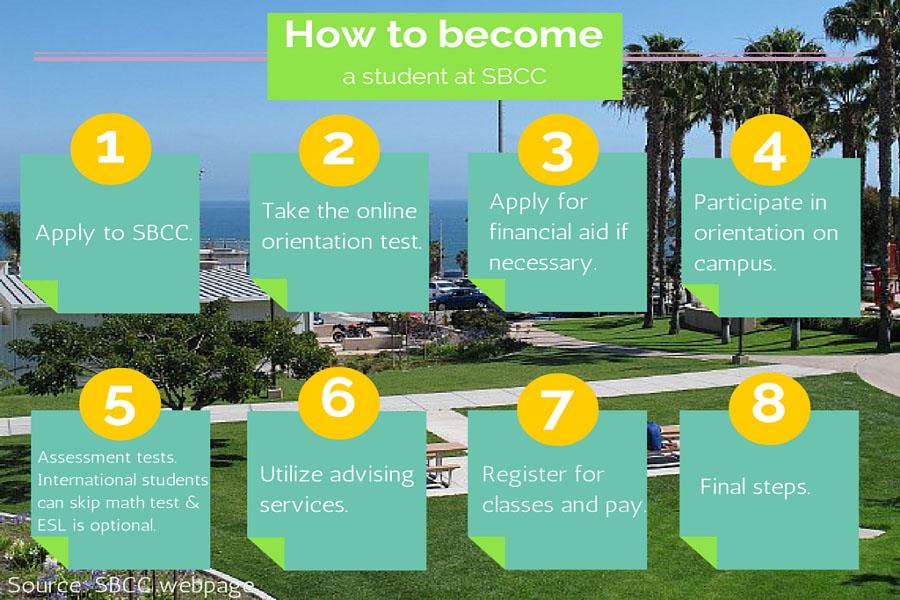Before enrolling for classes at City College, international students are required to take an English assessment test just as every other student.
However, the standard level test is at a supplementary level, lacking any listening and speaking portions to test those new to the country and language— which for some students from foreign countries can be the most challenging parts of the language.
“I do think it would be beneficial to our students if there were a little bit more emphasis on listening and speaking skills,” said Carola Smith, director of international programs. “Because that way, it would be a more rounded assessment of their skills before they enter the classroom.”
The tests must be taken in English within City College’s assessment facility with no outside proctoring here or in their home countries. The standard test being the basic sentence structures of the English language and the advanced option being the assessment all U.S. students take. By scoring well on either test, international students have the ability to test out of English Second Language classes and be placed into English 70, 80 or 100.
The concern that Smith has for the fate for the international students who assess is not about them testing into reading and writing classes, but instead into classes that require lecture periods, listening comprehension, and speaking skills. English teachers seem to not feel the brunt of this lacking portion of assessment.
Debra Brinkman, usually an English 100 teacher feels that the level of preparedness varies on the student. The students that are in her classes either assessed directly into the class or advanced from English 80 and though these can be challenging classes believes the students should be able to handle the level of comprehension required.
“Some students are better prepared than others, some are stronger readers and writers, some have a stronger work ethic,” said Brinkman in an email. “There is always a range and it doesn’t matter if the student is local or from out of town, out of state or out of the country.”
Once being an international student attending City College, Smith sympathizes with the challenges that students are facing today when taking the assessments in English as a second language.
“You could have a student with good writing skills, maybe even decent grammar skills but might sit down in a lecture and not able to understand the professor,” said Smith. “Even though they might have done fairly well on the written part of the assessment.”
International students cannot register for English classes above their placement standards but City College does have a large list of classes that have what is called a skills advisory recommendation. These skills advisories, instead of requiring previous classes to register only recommend a minimum math and/or English level.
Although International Program councilors attempt to dissuade students, enrolling in classes that do not have an English prerequisite could jeopardize the success of students who have not mastered the English language. “Our advice to our students is that they’re wasting their money if they do that,” commented Smith.
The trouble of listening and speaking in a new language is challenging for anyone but doing it for a grade puts added stress on these students who are trying to succeed. But due to the proper assessment of these skills before entering classes at City College, the professors and instructors now have an extra challenge to conquer in the classroom. “It makes it more challenging for faculty to work with these students in their classes, because faculty count on students being able to comprehend what they’re saying in class and in lectures,” said Smith. “So in that regard, it makes it more challenging if you have a student who has very limited listening and verbal skills.”
The enrollment process is roughly the same for both international and U.S. students, along with the requirements for every class that they enroll into. Though the rumors of international students somehow slipping through the cracks of the assessment requirements are false, these students are at a disadvantage.








